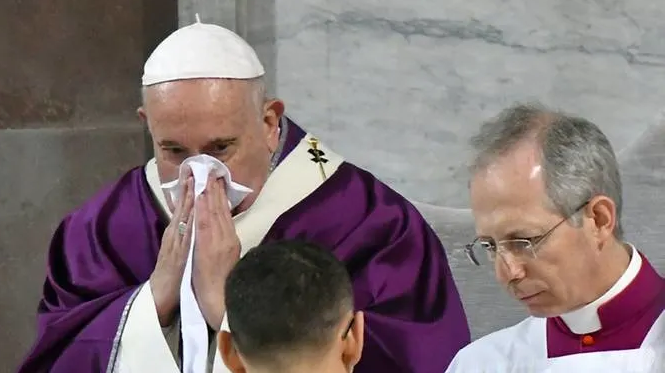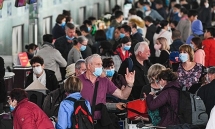How coronavirus is changing global habits, lifestyles
 | Vietnam epidemic song features on John Oliver"s show |
| Pope tests negative for COVID-19: Italy report | |
| Vietnam to suspend visa-free travel for Italians over coronavirus concerns |
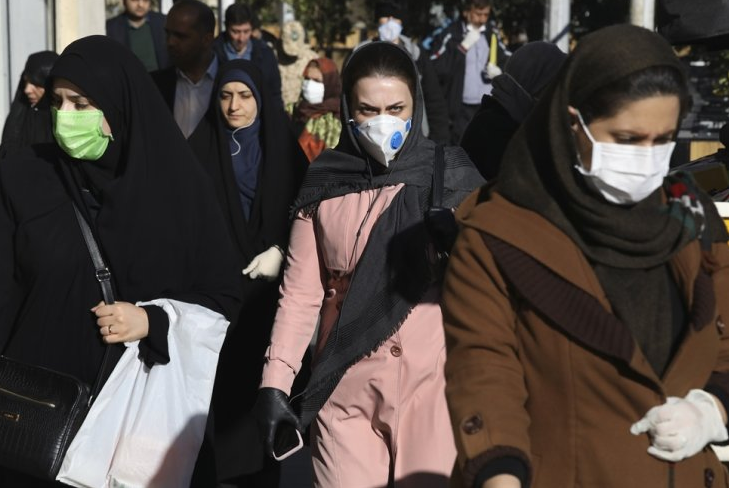 |
| People wearing face masks walk on a sidewalk in downtown Tehran, Iran, Monday, March 2, 2020. Photo: AP |
CHINA
Health experts have recommended avoiding handshakes as a way of preventing the spread of the novel coronavirus. Instead, try a direct gaze, or maybe a hand gesture.
In Beijing, the capital of the country where the outbreak began, red hoardings tell people not to shake hands but to join their own hands together in a sign of greeting.
Loudspeakers tell people to make the traditional gong shou gesture - a fist in the opposite palm - to say hello.
SOUTH KOREA
During the six weeks since the first case of the COVID-19 was confirmed in Korea on Jan 20, daily patterns of consumption and lifestyle in Korea have changed significantly.
With the global pandemic sweeping across the nation, more and more companies are allowing their employees to work from home. The streets have become emptier, and the number of people using public transportation has plummeted.
The Catholic Church in Korea has halted its mass services for the first time in its 236-year local history.
Card payments at online shopping malls increased by 31.4 percent in the third week of January, and 28.6 percent the following week. Sales at convenience stores, meanwhile, are seeing an increase, as people tend to visit shops near to their homes, rather than large retailers.
FRANCE
Newspapers have been filled with advice on how to replace kissing on the cheek - an everyday greeting in France, even between people who have only just met - and handshaking, a common formality at work.
Etiquette expert Philippe Lichtfus, who has been widely cited in the media, says handshakes are a relatively recent development that began in the Middle Ages.
He says simply looking into a person's eyes can suffice as a greeting.
BRAZIL
Brazil's health ministry has recommended that citizens not share metal straws used to consume the caffeine-rich South American drink mate, also known as chimarrao.
Meanwhile a kiss - even if not on the mouth - is totally advised against as a greeting.
 |
| Angela Merkel reached out to greet Horst Seehofer at a meeting on migration in Berlin. AFP/John MACDOUGALL |
GERMANY
In a sign of the times, Germany's Interior Minister Horst Seehofer rebuffed Chancellor Angela Merkel's attempt to shake hands with him on Monday, smiling and keeping both his hands to himself.
They both laughed and Merkel threw her hand up in the air before taking a seat.
SPAIN
The outbreak could hit one of Spain's most cherished traditions - the kissing of sculptures of the Virgin Mary in the week leading up to Easter.
With just a month to go before the week starts, the ritual could be banned. "It is one of the measures that is on the table," said national health official Fernando Simon.
During the holy week, the faithful queue up to kiss the hands or feet of sculptures of Mary and the saints, seeking their protection.
ROMANIA
Romania's Martisor festival marks the beginning of spring when talismanic strings and flowers are handed out, often from men to women.
But the government has passed on a message to people urging them to hand over the flowers and talismans without the accompanying kiss. "Let's give the flowers but not the kiss," said Nelu Tataru, state secretary at the health ministry.
POLAND
In Poland, one of Europe's most Catholic countries, the faithful are allowed to take "spiritual communion" instead of consuming the communal bread - or it can be taken in the hands rather than the mouth.
The faithful have also been asked not to dip their hands in the holy water when going in and out of the church and instead make the sign of the cross.
IRAN
Is the footshake the new handshake?
In Iran, where 66 have been killed by the coronavirus, a video has gone viral showing three friends meeting, hands in their pockets and two of whom are wearing masks, tapping their feet against each other as a greeting.
A similar video in Lebanon shows singer Ragheb Alama and comedian Michel Abou Sleiman tapping their feet against each other while making kissing noises with their mouths.
NEW ZEALAND
Some educational institutions in New Zealand have temporarily abandoned the Maori greeting known as the hongi - which involves two people pressing their noses together.
Wellington polytechnic WelTec said that instead of staff greeting new students with a hongi, its welcome ceremony would instead include a waiata, or Maori song.
UAE
The United Arab Emirates, as well as Qatar, are advising citizens to stop the traditional "nose to nose" greeting.
The UAE also said that people shouldn't shake hands or kiss. Greet each other "by waving only", it said.
 |
| 30 Vietnamese citizens who returned from China’s Wuhan city allowed to go home after a 21-day quarantine. |
VIETNAM
Lecturers and students at many universities in Ho Chi Minh City and elsewhere are making instant hand sanitiser, surface sanitiser spray and anti-bacterial handwash, which are much in demand, and giving them for free to staff, students and other many dosmestic and international organizations.
The some university has also made surgical masks for them.
Many schools, universitieshave have to provide online classes for students since they are unable to attend school due to COVID-19 fears. Parents decided to take leave in turn so there would always one parent at home with the kids.
Many activities at relic sites, tourist destinations was suspended, to limit the gathering of large numbers of people, in order to curb the spread of the dangerous virus./.
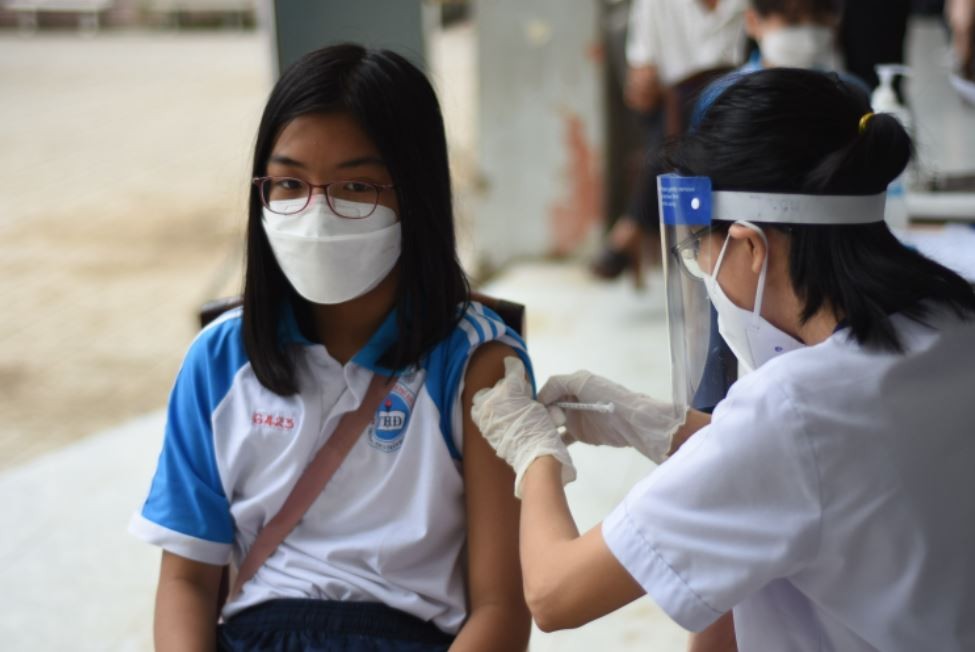 Focus
Focus
Vietnam Covid-19 Updates (May 1): Daily Infections Fall to Nine-month Low of 5,109
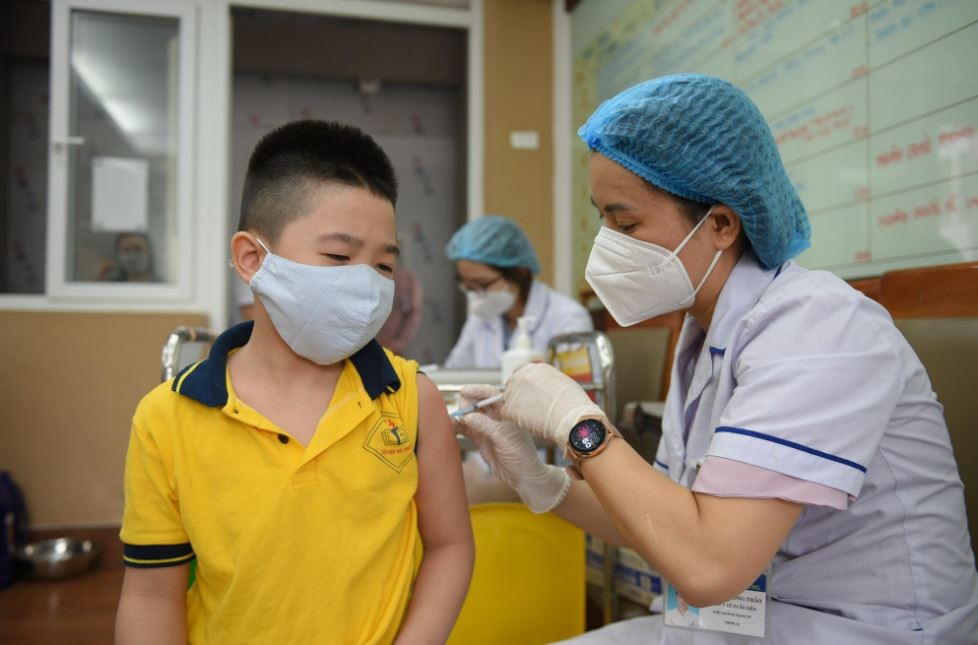 Focus
Focus
Vietnam Covid-19 Updates (April 29): 7,100 Cases, 79,000 Recoveries Reported
Recommended
 Handbook
Handbook
Vietnam Moves Up 8 Places In World Happiness Index
 Handbook
Handbook
Travelling Vietnam Through French Artist's Children Book
 Multimedia
Multimedia
Vietnamese Turmeric Fish among Best Asian Dishes: TasteAtlas
 Handbook
Handbook
From Lost to Found: German Tourist Thanks Vietnamese Police for Returning His Bag
 Handbook
Handbook
Prediction and Resolution for the Disasters of Humanity
 Handbook
Handbook
16 French Films To Be Shown For Free During Tet Holiday In Vietnam
 Handbook
Handbook
Unique Cultural and Religious Activities to Welcome Year of the Snake
 Handbook
Handbook

